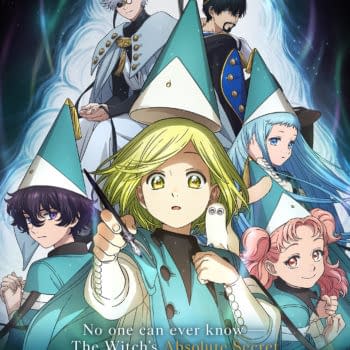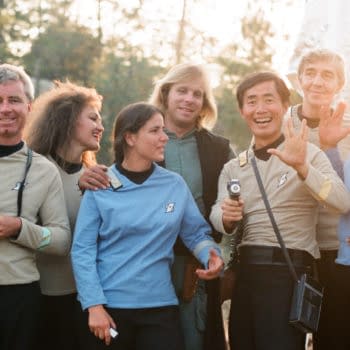Posted in: BBC, Disney+, Doctor Who, TV | Tagged: doctor who
Doctor Who: Has the Series Become Too Old and Too Familiar?
Has Doctor Who become too fixated on its twenty years of modern continuity and sixty years of lore and not enough on telling new stories?
When the current season of Doctor Who ended with The Doctor regenerating into Billie Piper, it was a surprise that was pleasant to some but not all fans. That moment, rumoured to be a last-moment reshoot only a few months ago after the finale episode "The Reality War" was shot a year ago, could represent everything good and bad, right and wrong, about the current state of the show. Good because it was a fun and totally unexpected surprise. Bad because it depended on viewers knowing who Piper is and why she is becoming, apparently, the Sixteenth Doctor, while casuals wouldn't know or care.

You could argue that Doctor Who, the modern version of the show, has become hung up on its own continuity, constantly referring to the characters and tropes of the show's history, both from the classic and modern eras. This commonly happens with TV series when they go on for more than three series, no matter what genre. A series starts looking inward too much, gazing at the characters and the various questions about their personal stories, more than the outside plot they're facing. Shows end up writing their own fanfic more than finding new stories that don't involve the characters' past or tropes. For a series that has been around for more than sixty years, that can become a problem when new episodes depend on elements from its history that are totally mysterious to a new or casual audience member.
It was Russell T Davies who said back in 2005, when he revived Doctor Who with a fresh coat of paint and fresh faces, that the problem with the classic series was that it got old. It got creaky; it felt no longer fresh. He updated the series in 2005 to a post-Buffy era, introducing Rose Tyler as an audience stand-in, where Piper appealed to a young female audience. That signaled that Doctor Who was not just a "Boy's Own Adventure" show but had appeal for female audiences who grew up on Buffy, fantasy, and Science Fiction.
The series still had its plots, but there was greater emphasis on emotions and character development rather than everyone staying the same from week to week. Now it's been twenty years, and the series might be having a mid-life crisis. Even if you treat the modern series as its own thing, twenty years is a long time for any TV series to last. The question is whether a fresh approach is needed, a return to characters discovering new stories rather than stories that depend too much on decades-old lore and continuity, and are in danger of vanishing up in smoke. That's the eternal question that every long-running TV show faces, if it even gets to last at all.
Doctor Who is streaming on Disney+ outside the UK.














